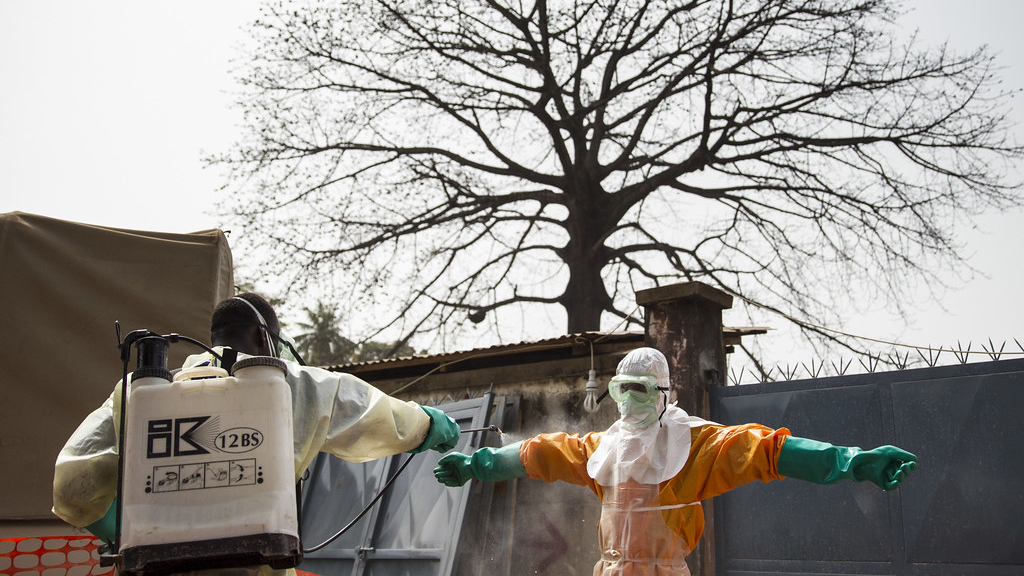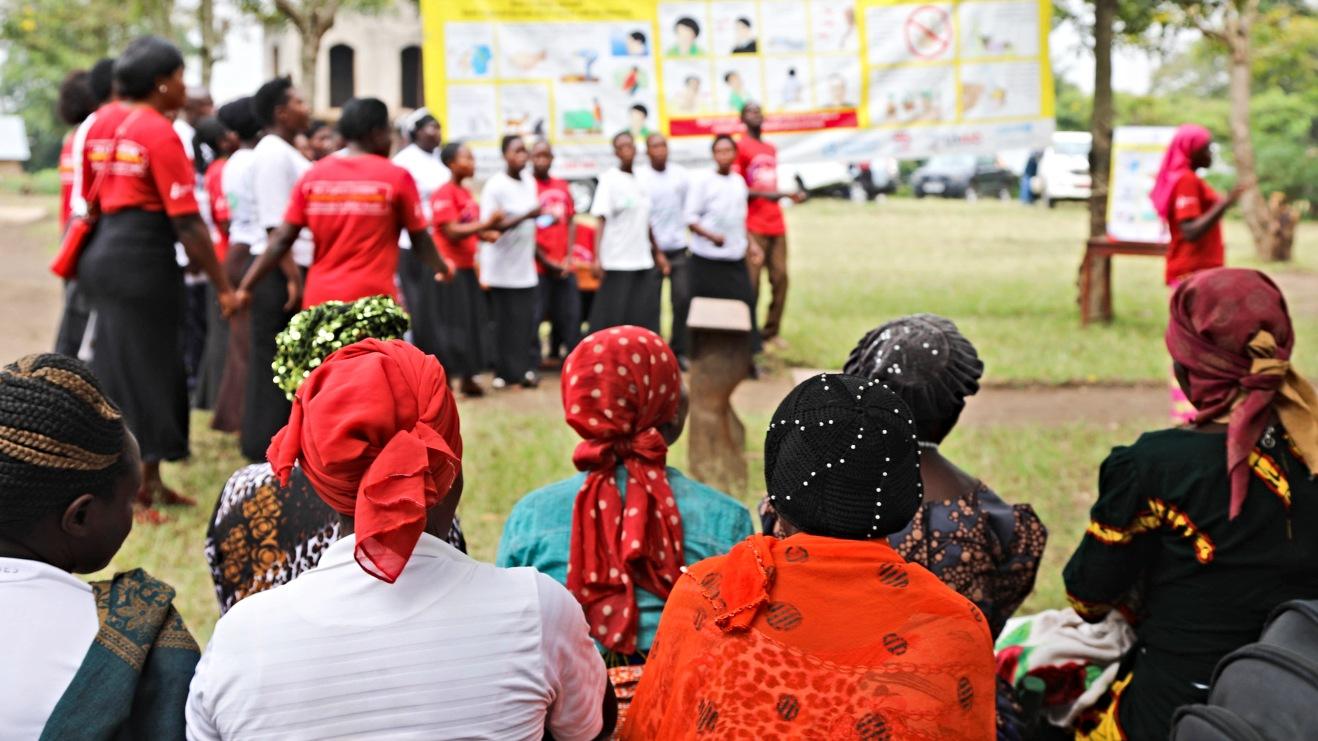Tessa Laing examines three divergent approaches to tackling health staff accountability in Gulu, northern Uganda.
This article is part of the #PublicAuthority blog series, part of the ESRC-funded Centre for Public Authority and International Development.
Akello Jennifer sets off on foot with her feverish two-year-old daughter slung on her back. By mid-morning, they arrive at the local Health Center 2, Patiko. The building is locked. She waits anxiously with a group of other patients. At midday, her daughter has a seizure. Panicking, and with no money, Akello begs a motorbike to take them to Awach Health Center 4. Her daughter dies on the way. The staff face no consequences. It is August 2017 in Gulu District, Uganda.
‘Accountability’ has become a key buzzword in international development circles. Policy makers and NGOs increasingly acknowledge that unless public health staff in contexts like Uganda are held accountable for turning up and doing their jobs, infrastructural developments, provision of drugs or diagnostic tools cannot save lives. High maternal mortality rates are a particularly poignant example of the impact of absent health-workers. A 2016 research paper concluded that absent doctors were “the single most important factor contributing to delays and associated adverse outcomes for mothers and babies in Uganda.” Maternal mortality rates in Uganda are still unacceptably high. The latest WHO survey (2015) showed a ratio of 343 deaths per 100,000 live births across Uganda. A survey in Gulu District conducted by ACT Health project in 2016, however, suggested an even more disturbing ratio: 1,212 deaths per 100,000 live births.

In Uganda, mega funders USAID and UKAID both have large-scale projects targeting accountability of government health workers: UKAID’s Accountability can Transform Health (ACT Health) and USAID-funded Strengthening Human Resources for Health Activity (SHRH). Both projects aim to reduce health worker absenteeism, operate in a range of Districts including Gulu, and have spent millions of pounds.
While it is been three years since these projects kicked off, it is hard to imagine how accountability of health workers in Gulu District could be in a worse state. According to available records from health centre attendance books, average absenteeism of health workers in Gulu in 2017 was around 60 per cent. This picture is incomplete; many health centres failed to submit any data at all. It is often suggested that government workers do not show up because they are not paid for months and are forced to find alternative sources to pay rent. This is not the case in Gulu. In the last two years, Gulu District staff have never missed a salary payment. Salaries were paid early or on time 63 per cent of the time, and salaries were never more than two weeks late. A more compelling reason that workers fail to show up is because they can get away with it. Disciplinary structures within Local Government are simply not functional. In February 2018, the District disciplinary committee sat for the first time in three years. The committee heard thirteen backlogged cases involving a staggering number of offenses. In many cases, staff had been absent for periods of over six months, while several cases involved absurd offences such as frequent drunkenness, physical violence and damaging government property. The committee acted cautiously. Very cautiously. Only three of these cases were referred onwards for the possibility of suspension or firing. The rest received just a warning letter. Despite myriad recurrent offences, in the last five years no health worker has lost their job in Gulu District. The bar is set extremely low. When you can be absent for six months and still keep your job, and a health worker absent for a week faces no repercussions, it is hardly surprising that Gulu has a big problem with absent health staff.
The USAID and UKAID projects use three divergent approaches to tackle staff accountability. Let’s take a look at each in turn.
USAID and Intra-Health SHRH project: Equip local governments to improve monitoring:
The idea is simple: Intra-heath trains health centre supervisors to use a tracking tool (a hand-written form) to record each staff-member’s attendance rates. The data is submitted monthly to the District, and entered into a computer database. Managers are supposed to use the database to discipline absent staff. Intra-health has made big claims about the success of this scheme, which has been rolled out in 116 Districts. Intra-health’s project review of 55 sample districts showed that the overall average absenteeism rate fell from 69 per cent in 2015 to 49 per cent in 2016. Moreover, their research claims that absenteeism rates without approval (i.e. no approved sick leave, bereavement leave etc.) dropped from 50 per cent in 2015 to 11 per cent in 2016. They attribute this incredible drop in non-approved absenteeism to better human resource management. If this is the case, it is a truly remarkable result.
Without pretending to have comprehensive hard evidence, my observations in Gulu leave me sceptical about these findings. The data-base of staff member attendance exists in Gulu, but is not up to date or utilised. The most recent analysis of health staff attendance I can access is already six-months-old, and it relies on attendance book data, which can be meddled with. The most recent data I can access puts overall absenteeism (approved and non-approved) at around 40 per cent, which is simply too good to be true. Instances of absenteeism are rarely acted upon. Gulu does not have records of non-approved absence that I can compare with Intra-health’s figures. While it is possible that Gulu is an anomaly, it seems unlikely. Gulu was rated as the second best performing District Health department in Uganda. One possibility is that the shift from unapproved absenteeism to higher rates of approved absenteeism merely reflects a more effective ‘cover up’ from supervisors to maintain the status quo.
On the surface, this project looks like a great achievement for USAID. It might look like money well spent. In the case of Gulu District, I am not confident local health workers are more accountable for providing basic services to communities.
UKAID and ACT Health: empower communities to monitor and censure their local health workers
Part of the ACT Health project is a randomised control study designed to examine the potential benefits of holding dialogues and with patients and local health workers. The study seeks to replicate a trial conducted in Uganda in 2007 called Power to the People, which found that health centres included in the intervention showed significantly improved health outcomes, including reduced absenteeism, when compared to control health centres. The key idea is that patients who are educated about their health rights, receive reliable information their local health centre’s performance and engage in dialogue with their local health workers, could monitor performance and create improvement through direct pressure. Sure, community members and local management committees do not have any disciplinary powers and cannot threaten a health worker’s pay or job. But they can exert social pressure that could prompt their local health workers to improve services.
This study seems like a logical enough move. I am curious about the results. But even if there is positive change, is it realistic and sustainable to expect resource-poor communities to indefinitely police their local health services? That’s what higher authorities at the sub-county and district are paid to do. Should they be let off the hook and all the unpleasant work be left to patients? When UKAID stops funding community-health worker dialogues and health centre performance surveys, will any improved performance continue? This study needs to revisit these health centres several years down the track if they want to find out.
UKAID and ACT Health: empower and mentor ‘community advocates’ to push for change at the district level
In late 2017, two local men came to Gulu Town and demanded the district address the absenteeism problem in six health centres across the district. They had convincing, well-documented evidence gathered by a group of citizens working together in different sub-counties. They knew the relevant Ugandan policies and duties of local authorities. They had specific demands and a follow-up strategy. I discovered that this group, ‘Community Advocates’ are trained and mentored by an organisation called HEPS Uganda as part of the UKAID-funded ACT Health project. These groups now exist in all eighteen districts under the project. I was immediately enthralled.
For the last six months, I have closely observed the Gulu group’s advocacy progress among district officials. Their monitoring work named staff who were absent for weeks, and staff who turned up for only a few hours each day. While they were initially given a platform to present their findings at a large meeting of managers and health centre in-charges, their work is yet to result in even verbal warnings to the health workers concerned. No disciplinary action has been taken. In Gulu, I believe this group is about to reach a dead-end in what can be achieved with polite requests and diligent follow up. Will the group (and their mentors from the ACT Health project) be willing to step up their strategies and create real pressure, if need be with less-friendly tactics? Are they willing to seriously annoy leaders and threaten their reputations? If they are, it will be the first time in my five years in Gulu District that I have seen any NGO or project encourage and equip citizens to actually confront and tackle their local government. Donor/NGO projects love to collaborate with the district, fund policy creation, fuel their vehicles, and occasionally take part in ‘marches’ that are more like parades with brass bands and NGO group rent-a-crowds than protests. They do not rock the boat. If ACT Health and community advocates step up their campaign where they face resistance, it would represent a significant, exciting break with current norms of how NGOs relate to local government in Northern Uganda.
To have any chance of success, community advocates in Gulu needs to target the heart of the problem with accountability of health workers in Uganda: the dysfunctionality of the district disciplinary system. From what I have observed, this is not going to happen in Gulu without tension and conflict. ACT Health Uganda and HEPS needs to boldly break with the status quo and equip the advocates with the full range of tactics known to the advocacy arsenal.
Read more about #PublicAuthority and visit our website.
Tessa Laing is an advisor to Gulu District Local Government on social and environmental justice issues and holds a Master’s degree in Anthropology from the University of Canterbury
The views expressed in this post are those of the author and in no way reflect those of the Africa at LSE blog, the Firoz Lalji Centre for Africa or the London School of Economics and Political Science.





